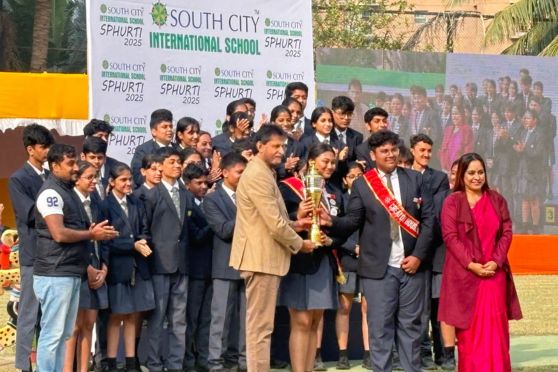Looking for skill training or want to enrol for a vocational course? Have an idea for a start-up but don’t know where to start? Need help with your job search? The All India Society for Electronics and Computer Technology (AISECT) and its wide network can be your friend, philosopher and guide.
AISECT has been working in the areas of skill development, vocational training and e-governance for over three decades. Founded by Santosh Choubey, the Madhya Pradesh-based NGO began by promoting science and literacy in rural areas and building content in Hindi and other regional languages.
“AISECT started with a train-the-trainer model where it hired educated but unemployed entrepreneurs from the towns and villages who wanted to be a part of the IT training and skilling journey,” said Siddharth Chaturvedi, director, AISECT.
The 35-year-old social enterprise now works on several verticals that help learners at different levels.
A look at AISECT’s ongoing projects
· Skill development and vocational training
AISECT started in the IT and electronics sector but now it has diversified to over 20 sectors. Since 2010, it has been partnering with National Skill Development Corporation (NSDC). AISECT works with 20 state skill development machines and a few central government ministries. To date, the organisation has trained 15 lakh students. AISECT has tracked 8 lakh students who have gained employment and self-employment.
· Higher education
There are five institutions in Madhya Pradesh, Chhattisgarh and Bihar under the AISECT group of universities. The first campus was set up in 2006 in Chhattisgarh. Rabindranath Tagore University (RNTU), Bhopal, is AISECT’s flagship university. The education imparted at the universities is based on skill as the building block, with several short-term skill development programmes, degree and diploma courses on offer.
· Incubation and start-up space
AISECT established the first Atal Incubation Center (AIC) supported by NITI Aayog under the Atal Innovation Mission. More than 40 start-ups are associated as incubatees at AIC-RNTU.
Kutumba, a financial planning app, is one of the start-ups that benefited from the centre. AIC helped the founder, Vinaya Sathyanarayana, in the ideation stage. It further mentored him to create a prototype. From its inception to the Go-to-market stage, AIC has been a part of Kutumba and several other start-up’s journeys.
· Early childhood learning kits
AISECT has developed activity boxes comprising eight to 10 learning tools for children starting for 0-2-year-olds. The CE-certified hand-crafted, non-toxic, plastic-free kits are available on Brainy Bear Store. “The idea is to help young parents pick the right learning tools for their children in their most crucial years of development. Our all-new subscription-based model delivers state-of-the-art learning experiences to children,” said Pallavi Rao Chaturvedi, parenting coach, early learning expert and founder of The Brainy Bear Store.
· Financial inclusion or banking in rural areas
AISECT works in association with the State Bank of India and other banks to set up banking kiosks in rural and semi-rural areas. These kiosks help bring financial literacy and access to banking in the rural area. By offering basic banking services, the kiosks promote understanding of the banking system.
What more AISECT has in store:
· Pilot to implement National Education Policy (NEP) 2020
Integrating skill development and training with school education is one of the key aspects of the NEP.
“AISECT is a unique organisation that has a deep understanding of both skill development and education sectors. We have our model and are trying to have skill courses running in an integrated fashion with degree programmes in our universities,” said Chaturvedi.
AISECT is also working with government colleges to support them in introducing skill programmes.
AISECT had already been imparting vocational training in 1,500 schools across India. They now have come up with a model to introduce NEP-based skill training to school students starting from Class VI. This model is set to go live between June and July 2022.
· CSR-based skill and education project
AISECT actively works with several corporates on CSR-based skill and education projects. “Recently, we have been able to collaborate with Microsoft and NSDC to provide women with skill development training. We are trying to work closely with industries under the CSR mandate,” Chaturvedi said.
· Bachelor of vocation stream
The University Grants Commission (UGC) of India had granted permission to AISECT to conduct Bachelor’s in Vocation (BVoc) programmes. The work-integrated training programmes offer recognised diplomas and degrees to students. AISECT works directly with industries to train the enrolled students. The programme was launched in 2021 and is set to expand in the 2022 session.
· Online learning portal
AISECT is developing its online learning portal. Initially, the portal will offer technology courses in Hindi. Plans include developing more courses in other regional languages as well as offering courses in fields such as health care and humanities.
Both AISECT students, as well as students from India and abroad, can enrol for the courses. “We already have seen interest from countries like Ghana for online training on retail, banking and other subjects,” Chaturvedi said. The portal is set to go live in April 2022.
· Job portal
Rojgar Mantra is AISECT’s job portal that it uses to help students gain employment. The organisation plans to scale up the portal and turn it into an app. While starting by connecting employers and job seekers in Madhya Pradesh, the app is set to cater to a wider audience shortly. AISECT plans on launching the app in March 2022.
AISECT has impacted students in the rural sectors of several Indian states. The Indian School of Business (ISB) has conducted a case study on the successful journey of AISECT’s multipurpose training centres. The study was published in the ISB library as well as the Harvard Business publishing library.






